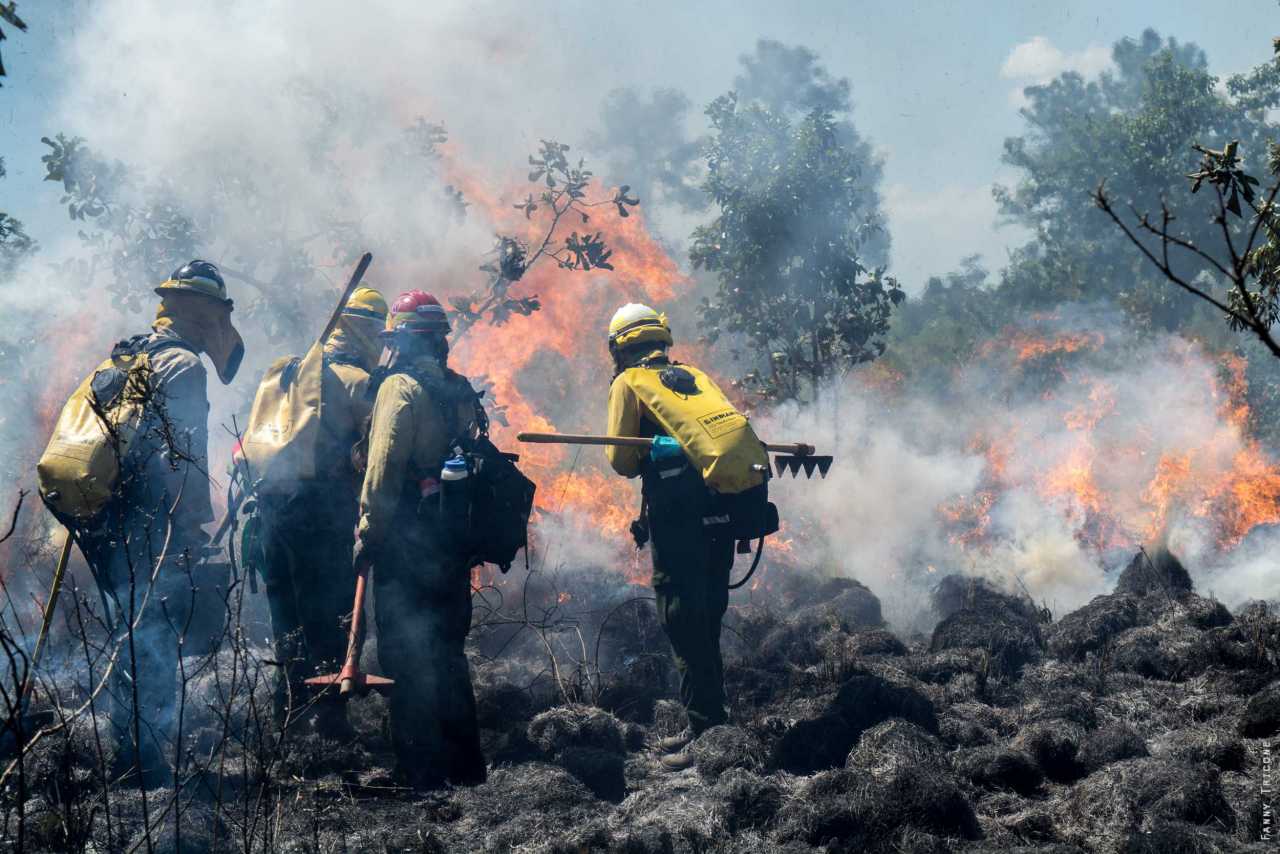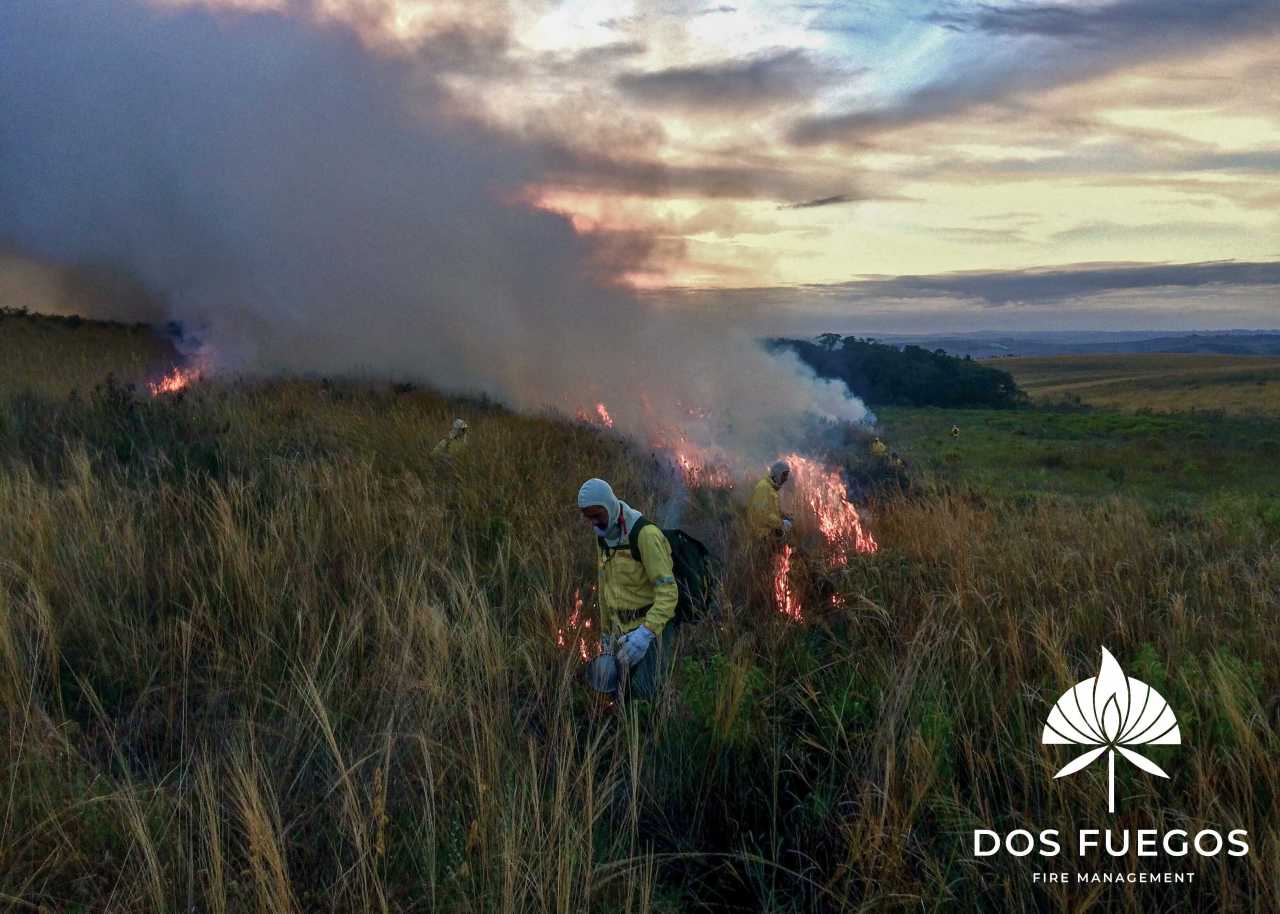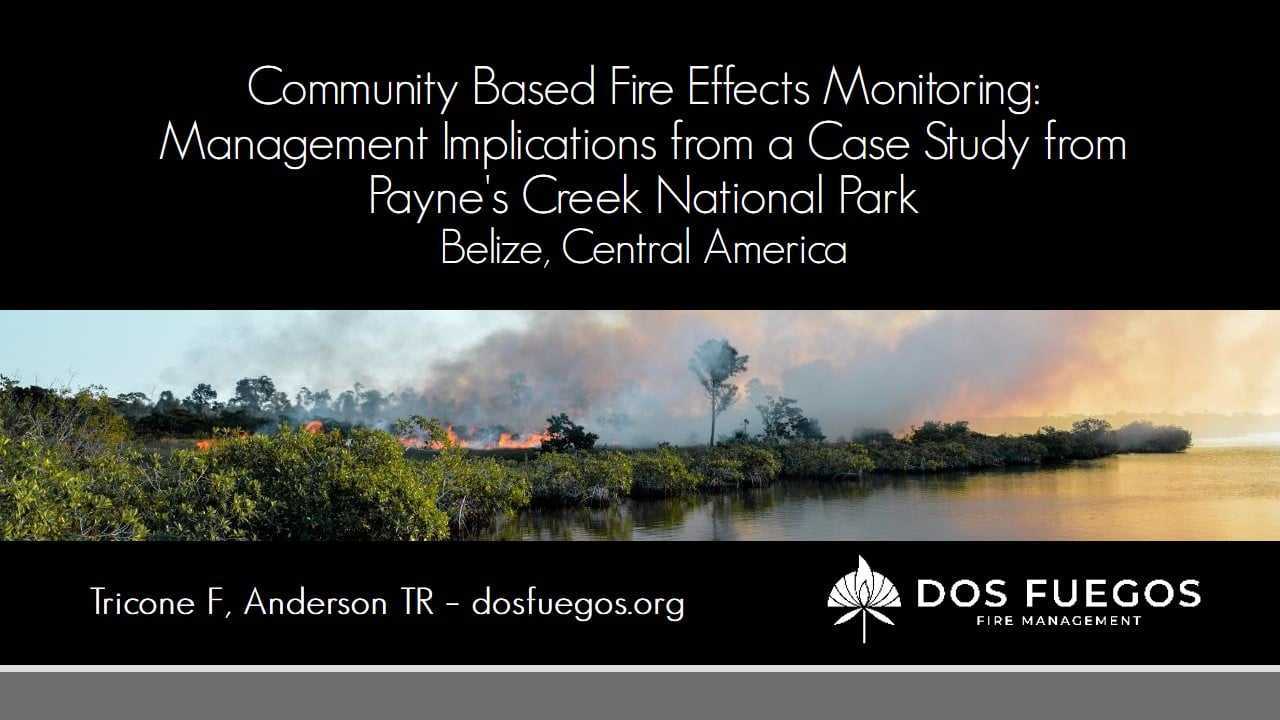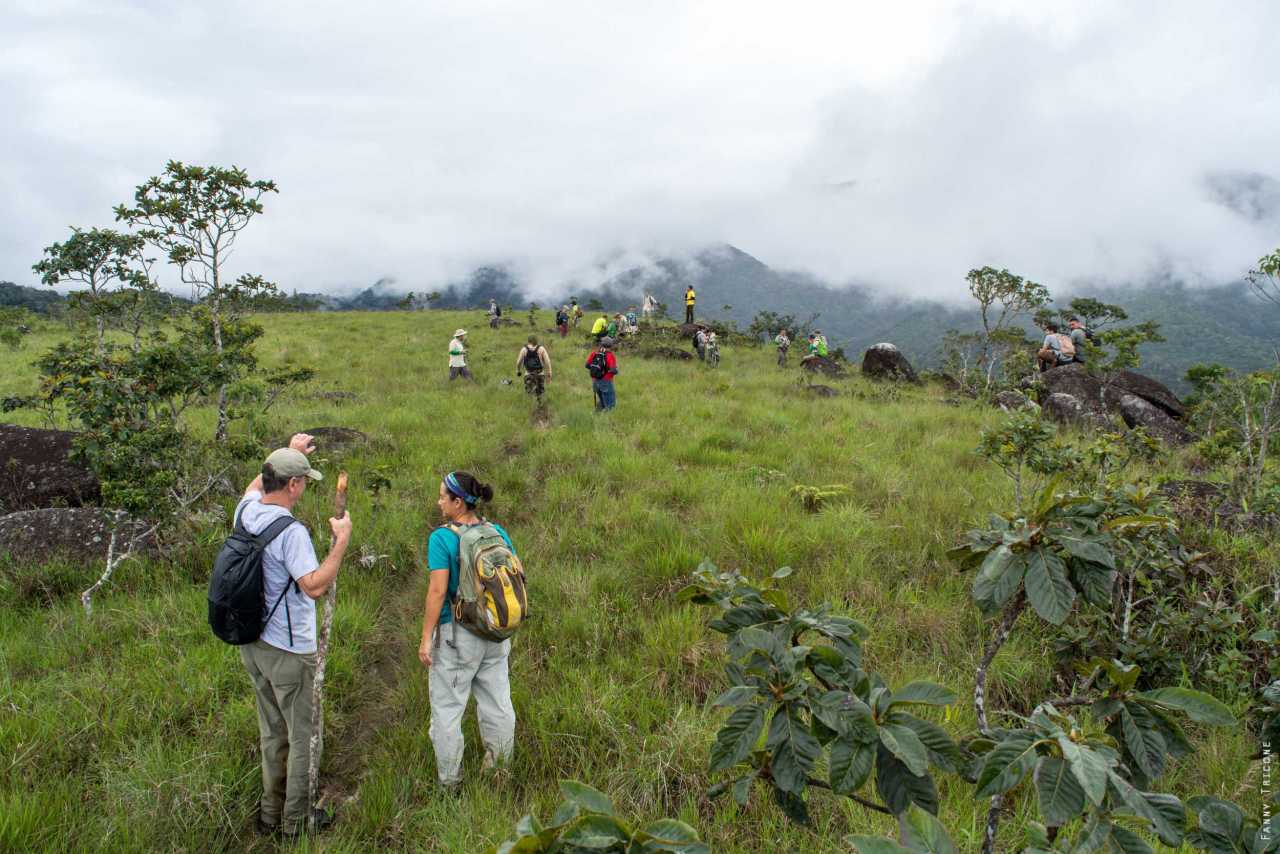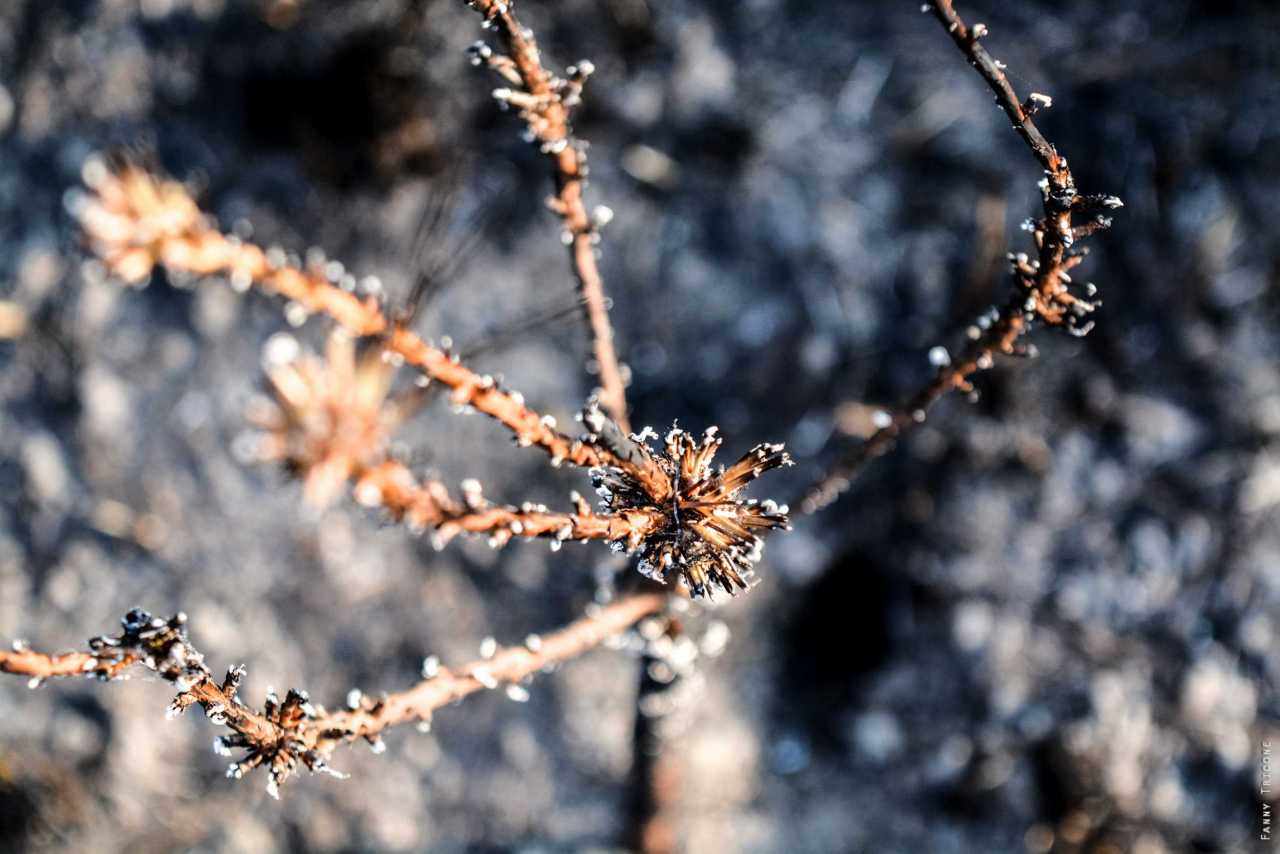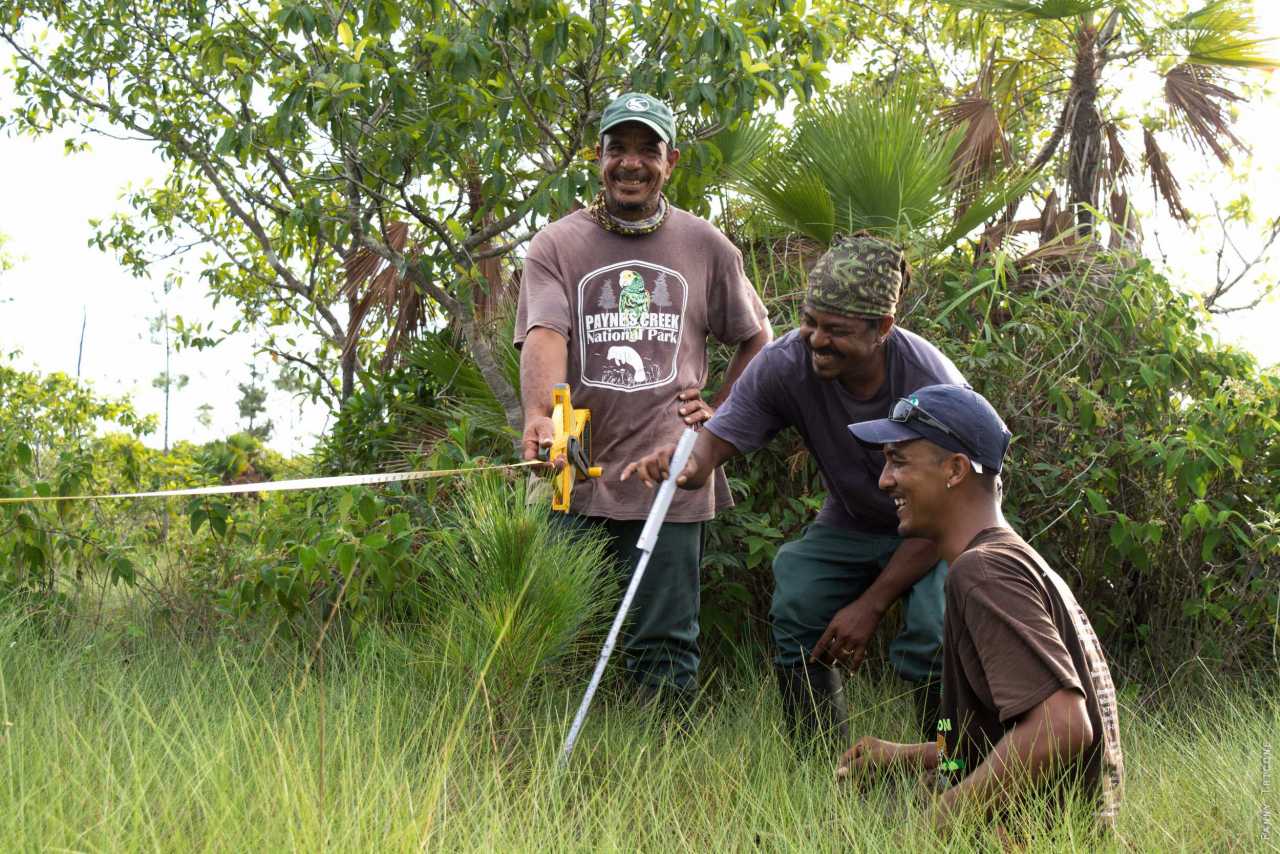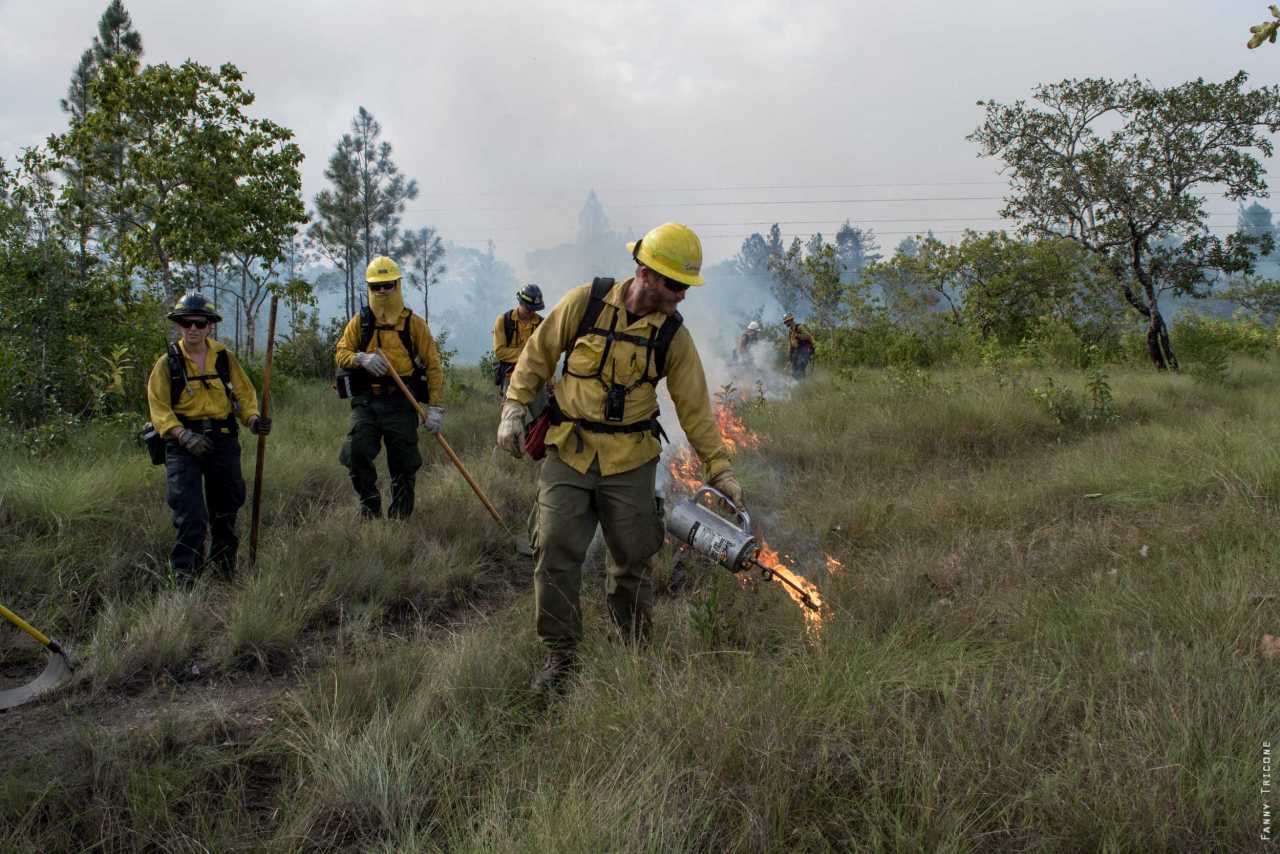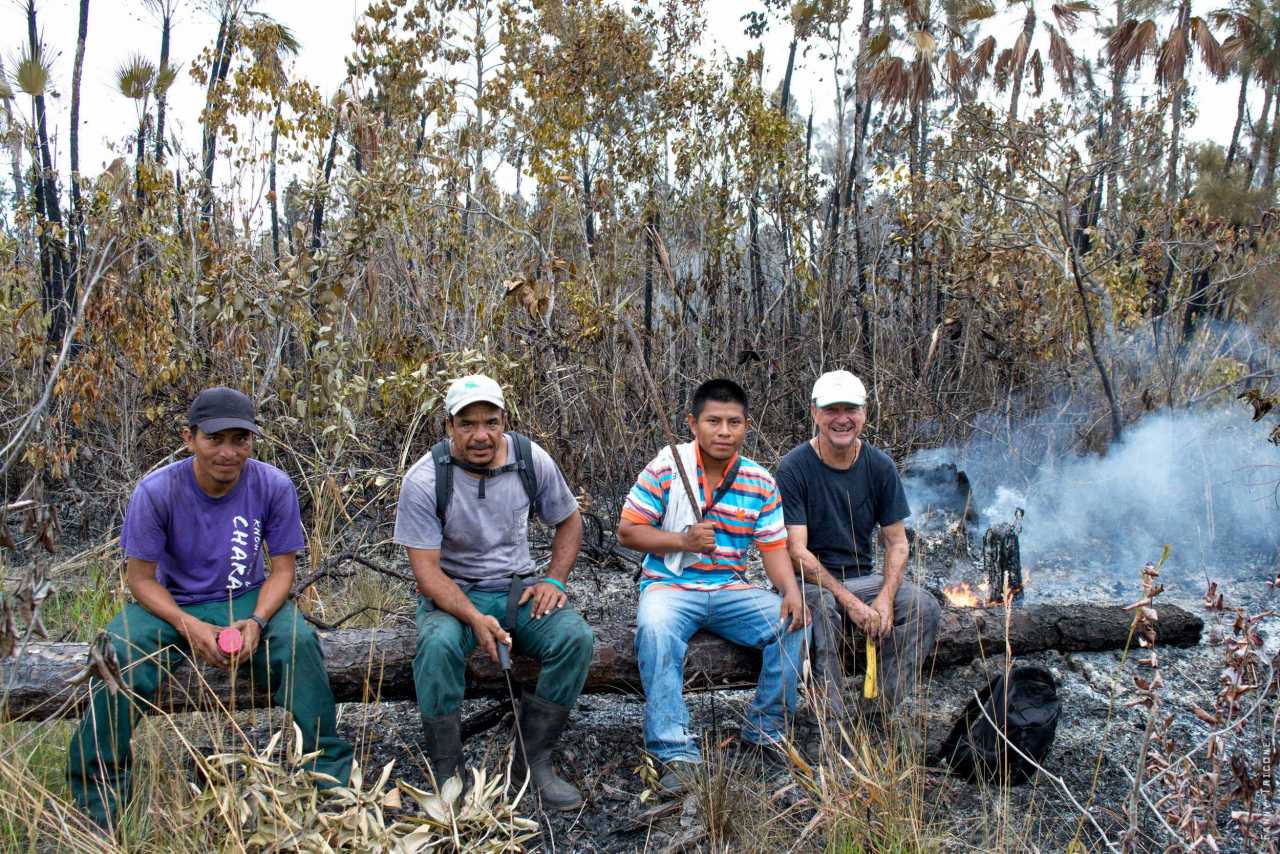Pinned Items
Recent Activities
-
#dosfuegos
https://vimeo.com/397314431
Lighting fires is the most courageous thing a conservationist can do.
Burning is an act of creation.
Prescribed fire promotes biodiversity and prevents destructive and severe fires.
To do ecological burning, we must also control fire.
Dos Fuegos hosted The Nature Conservancy in the Pine Woodlands and Savannas of Deep River Forest Reserve, Belize, for live fire training.
This video documents the remarkable journey of TNC fire practitioners and our Belizean partners to learn to harness the power of wildfire.
Much respect to The Nature Conservancy for stepping out of the ordinary classroom training and into beautiful Belize.
In the heat and humidity we came together to learn our skills in the sun and the wind.
Shoulder to Flame.
Not as heroic firefighters but as practitioners of the art and craft of fire.Post is under moderationStream item published successfully. Item will now be visible on your stream. -
#dosfuegos
Why do we teach fire in a classroom?
For all of us who have endured fire training indoors, using prepackaged power point presentations, we know one thing…
It is boring as f@*k.
Each year, an untold number of aspiring young firefighters have their inspiration stolen with dry powerpoint presentations.
Most fire trainings are outdated and don’t consider the needs of the new world of fire management.
Not to mention learning…
Sure. You can learn checklists, safety practices and agency policies in a classroom.
Do we think checklists teach us how to think about fire for society and the ecosystems?
With large portions of the planet fire prone, simply producing scores of new firefighters trained indoors is failing.
All you have to do is visit https://www.wildfirelessons.net/home to see our pathology.
For eons, humans have passed the torch from one generation to another.
We have invented no new ways to kill and injure fire line personnel.
We continue to commit the same mistakes over and over with predictable outcomes.
Insane.
Most experienced firefighters will tell you they learned their skills from someone on the fire line.
The problem with classroom training is that we bound young firefighters to a set of rules that do not encourage critical thinking and creativity.
Today’s fire environment demands legions of skilled firefighters and fire-lighters to protect life and property and the ecosystems that we all depend on.
The profession of fire management could use some soul searching.
Let us ask ourselves: Is there a better way?
Could it be that we are robbing the next generation from an opportunity to contribute to fire management solutions by using their genius and creativity?
To be a “Student of Fire” we need to transcend the checklist and box and burn mentality and achieve a more artful understanding of fire behavior and fire suppression tactics.
There will always be fires.
Some we must suppress in awful conditions.
To meet the challenges of the future we must think of fire differently.
That difference is using both the art and science of fire to work safely and effectively as fire practitioners.
And those skills aren’t derived from a bulleted checklist from an intellectually bankrupt NWCG course.
We derive skills best from direct experience and mentorship.
This is how humans learn best.Post is under moderationStream item published successfully. Item will now be visible on your stream. -
#dosfuegos
Brazilian protected area managers ignite the Cerrado to promote biodiversity and reduce the risk of severe dry-season fires.
With limited resources these skilled professionals do their part to manage these fire prone landscapes. Once burned, this grassland will not require emergency response in dry season.
This is responsible fire management being practiced in Serra da Canastra, Brasil.
The planet is bursting into flames.
Earth is reminding us we live on a fire planet.
We can send firefighters across the globe to respond to symptoms of our disconnect from nature.
Or we can pick up the torch and reclaim our knowledge of fire.
To know fire is to know the habitat that supports fire.
And that habitat is fuels, topography and weather.
You want to be a fire hero?
Make a plan. Burn. Monitor results. Evaluate. Refine. Adjust. Plan. Burn. Repeat.
You can do it.Post is under moderationStream item published successfully. Item will now be visible on your stream. -
#dosfuegos
From 2016 to 2018, Dos Fuegos led a Darwin Initiative project in Payne’s Creek National Park, Belize: “Conserving Pine Woodland Biodiversity in Belize through Community Fire Management”.
The problem the funding from the United Kingdom was attempting to address was how to reduce the risk of severe dry season wildfires on communities and biodiversity.
While affluent societies subsidize fire suppression and large suppression forces, there is no such effort in Belize.
Like many parts of the world there is no cavalry of yellow-shirt soldiers racing to suppress fires with management teams and air resources to hemorrhage money onto a fire until rain comes along and the “heroes” slap themselves on the back for a job well done and then return home with bank accounts swollen with hazard pay and overtime compensation.
In Belize, communities must respond to fire with their own ingenuity and little outside support.
There is significant indigenous knowledge in Belize and Dos Fuegos worked with the communities to integrate local insight with quantified data and science.
Together we built a science-based foundation to consider community needs and values to address fire management issues around the villages and communities who live and depend upon the fire-prone woodlands.
In collaboration with community members and protected area managers Dos Fuegos designed the first of 14 fire effects and vegetation monitoring plots in Belize to evaluate fire management practices.
We integrated fire management objectives from both protected area managers and the communities. Protected area managers focus upon reducing the threat of severe wildfires on the ecosystems, such as the regeneration of the pine population, and wildlife such as the Endangered yellow headed parrot which depends on mature pine trees for feeding and nesting. Communities use fire to protect crops, homes and clear land for farming. They also burn to enrich grasses for the species they hunt such as white-tailed deer and peccary.
To meet these sometimes conflicting objectives, it requires on the ground data collection.
Fire effects and vegetation monitoring plots are an essential informative tool to evaluate fire management program effectiveness and implement adaptive management.
After only 3 years of data collection, results highlighted the need for changing fire management practices in PCNP to meet management objectives. Current early dry season prescribed fires do not allow for survival of the pine seedlings in the open savanna of PCNP. The data suggested fire behavior that would provide better results. PCNP staff is now working into implementing wet season prescribed burning to create fire behavior and condition that would increase the survival of the pine seedlings and reduce risk of severe dry season wildfires.
Thanks to those monitoring plots, PCNP and the communities of Southern Belize are leaders in tropical ecosystems for implementing science based and adaptive fire management.
In 2019 Dos Fuegos presented the work of our collaboration with community members and local protected area managers at three major conferences: the Natural Resources Management Conference in Belmopan, Belize, the 6th International Fire Behavior and Fuels Conference in Marseille, France and the 8th International Fire Ecology and Management Congress in Tucson, USA.
The affluent world of subsidized smoke jumpers, hot shots, air tankers and wildfire victim thinking could learn a lesson from the ingenuity of the rural communities of Belize.Post is under moderationStream item published successfully. Item will now be visible on your stream. -
dosfuegos commented on this post about 4 years#dosfuegos
https://dosfuegos.org/article/2019-development-of-a-fuel-measurement-system-for-the-forest-fire-risk-mapping-system-in-costa-rica
One of Dos Fuegos most interesting projects this year was a collaboration with SINAC and CATIE funded by the United Nations Development Programme, in Costa Rica. Our work was to develop a plant fuel measurement system for the forest fire risk mapping system.
Click on the link above for more info on the project.-
Interesting. My country, Australia, is currently aflame and there’s a raging debate about the need and lack of regular backburning. Obviously, More ...
-
First, plants have evolved with fire for 100’s of millions of years (Silurian epoc). The aboriginal burning simply favored the existing fire More ...
Post is under moderationStream item published successfully. Item will now be visible on your stream. -
-
#dosfuegos
https://vimeo.com/328829970
You can’t learn much in a classroom unless it is supported by live fire.
Sure… classroom training is required for certificate and good things can happen when trainers and trainees spend time together.
But one cannot become competent and effective from a power point presentation by a sage on a stage.
One must have shoulder to flame.
This short video from the pine savannas of Belize tells the story of a group of The Nature Conservancy fire professionals working with their colleagues from the Southern Belize Fire Working Group and Dos Fuegos Fire Management to learn fire suppression skills through live fire exercises.
Dos Fuegos Fire Management can design and facilitate a variety of field based-trainings to meet the challenges of the serious threats we face by uncontrolled fire.Post is under moderationStream item published successfully. Item will now be visible on your stream. -
#dosfuegos
What is measured can be managed.
What is mis-measured is mismanaged.
Climate change has placed protected area managers in a vulnerable position because they have no clear knowledge or strategy to reduce the risk of catastrophic fire.
They continue the failed practices of suppression and reaction instead of a benign and proactive approach.
Fires are on the increase yet many protected area managers and conservationists are in an unsustainable reaction mode of response.
In this reactive state of management, biological diversity of forests, wetlands and savannas are threatened by severe fires having unprecedented impact.
Conservation decision makers know little about how to prepare for the impacts of frequent fire because they know little about fire ecology and fire risk.
Measuring and identifying fire risk and fuels are critical for increasing the positive effects of fire while limiting destructive and potentially catastrophic fires.
Dos Fuegos can help protected areas measure and manage fuels and fire risk while designing ecologically appropriate fire regimes to take the worry out of an uncertain climate future.
Climate change is here. Be prepared.Post is under moderationStream item published successfully. Item will now be visible on your stream. -
#dosfuegos
Fire effects monitoring by managers and communities leads to effective research.
Many fire studies are initiated by graduate students and academic researchers. While they pursue funding to solve “management issues” and provide quantitative science to assist managers, researchers often have a short term understanding of the most important issues. Driven by the desire for another publication notch in their belts, long term needs of communities and practitioners often receive little attention after the grant cycle is over.
The pine woodlands and savannas of Payne’s Creek National Park, Belize, suffer from too frequent severe dry season fires. Those fires prevent the regeneration of the pines that are used by an array of savanna species, including the endangered yellow headed parrot.
Dos Fuegos bridges science and management by assisting managers. We develop quantitative fire effects monitoring to evaluate fire management practices. At Payne’s Creek National Park, our goal was to provide good baseline data for community based fire management decisions.
Results found that current early dry season prescribed fires do not allow for survival of the pine seedlings in the open savanna.
Our fire effects monitoring was successful at attracting capable scientists to focus upon our management questions.
Last week, the first “wet season” prescribed burn was conducted with the collaboration of researchers from the University of Florida and post burn observations look promising. With lesser intensity, pine seedlings are allowed to survive.Post is under moderationStream item published successfully. Item will now be visible on your stream. -
#dosfuegos
Prescribed fire has many benefits.
Fire Effects Monitoring is critical to measure and report these benefits. A good monitoring program is an excellent method to evaluate objectives and record fire behavior data to refine prescriptions.
Good prescriptions result in safe and effective outcomes for a controlled burn.Post is under moderationStream item published successfully. Item will now be visible on your stream. -
#dosfuegos
To understand fire, one must do field work. The lessons of fire are written upon the land. Students of fire study the intricate language of fire and its relationship with plants and animals.
Dos Fuegos Fire Management has developed a method for anyone to be fluent in fire ecology. Visit us at dosfuegos.org to get your free guides to evaluating fire effects.Post is under moderationStream item published successfully. Item will now be visible on your stream.
No posts yet

